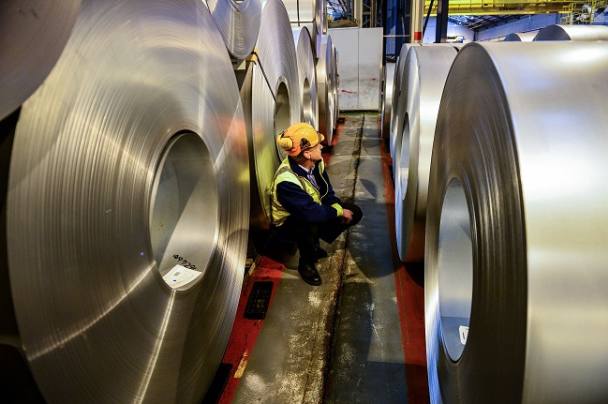Should we worry about productivity? Ordinarily, I’d say: emphatically yes. Getting productivity to grow is the only hope, in the long run, for getting incomes to grow.
But in a crisis the normal rules and ideas do not apply. One of these is the need for productivity growth.
One reason for this is that – as next week’s numbers will show – unemployment is rising. And high unemployment is a massive source of misery not just for the jobless themselves but for those in work, too. Adam Smith was dead right: “That we often derive sorrow from the sorrow of others, is a matter of fact too obvious to require any instances to prove it.”
This suggests that, for a given level of output, it’s better that there be lots of low-productivity jobs than than output be supplied by fewer but higher-productivity jobs. One fact tells us this. It is that aggregate wellbeing has increased since the Office for National Statistics (ONS) started measuring it in 2012 while productivity and wages have flatlined. People prefer low unemployment to high productivity.
But there’s more than this. One thing we are going to need in the coming upturn is lots of business start-ups. This is because this recession has quite likely disrupted the pattern of supply and demand: our spending patterns in coming months won’t be what they were last year. And the best way to meet a new pattern of demand is for there to be new companies to supply it.
Start-ups, though, usually have low or even zero productivity. Before they can make a penny in sales, they must train staff, set up IT systems and fit out shops, offices and factories. During this phase, their productivity is zero. If there are lots of start-ups, therefore – as we desperately need – aggregate productivity will be depressed for a while.
There’s something else. To see it, imagine a town has just one coffee shop. Its staff will be highly productive as they’ll be working hard to meet high demand. But what happens as other coffee shops open? Aggregate productivity will fall. Those shops will hire people but, overall, the staff will spend more time waiting for customers. This will be good for customers simply because there’ll be more competition.
Competition requires there to be slack – but slack means lower productivity. Yes, competition eventually drives up efficiency, as the least efficient companies go out of business. But in the short term it can reduce it.
You might object here that this shows that our interests as shareholders conflict with our interests as customers. As customers, we want competition, but as shareholders we want high-productivity monopolies.
But it’s not as simple as that. The essence of social science is that what’s true for an individual company is not necessarily true for the aggregate. High unemployment can mean weak demand and political as well as economic uncertainty. These are not always conditions favourable for equity investors.
For the next few months at least, low productivity might be good for us.










